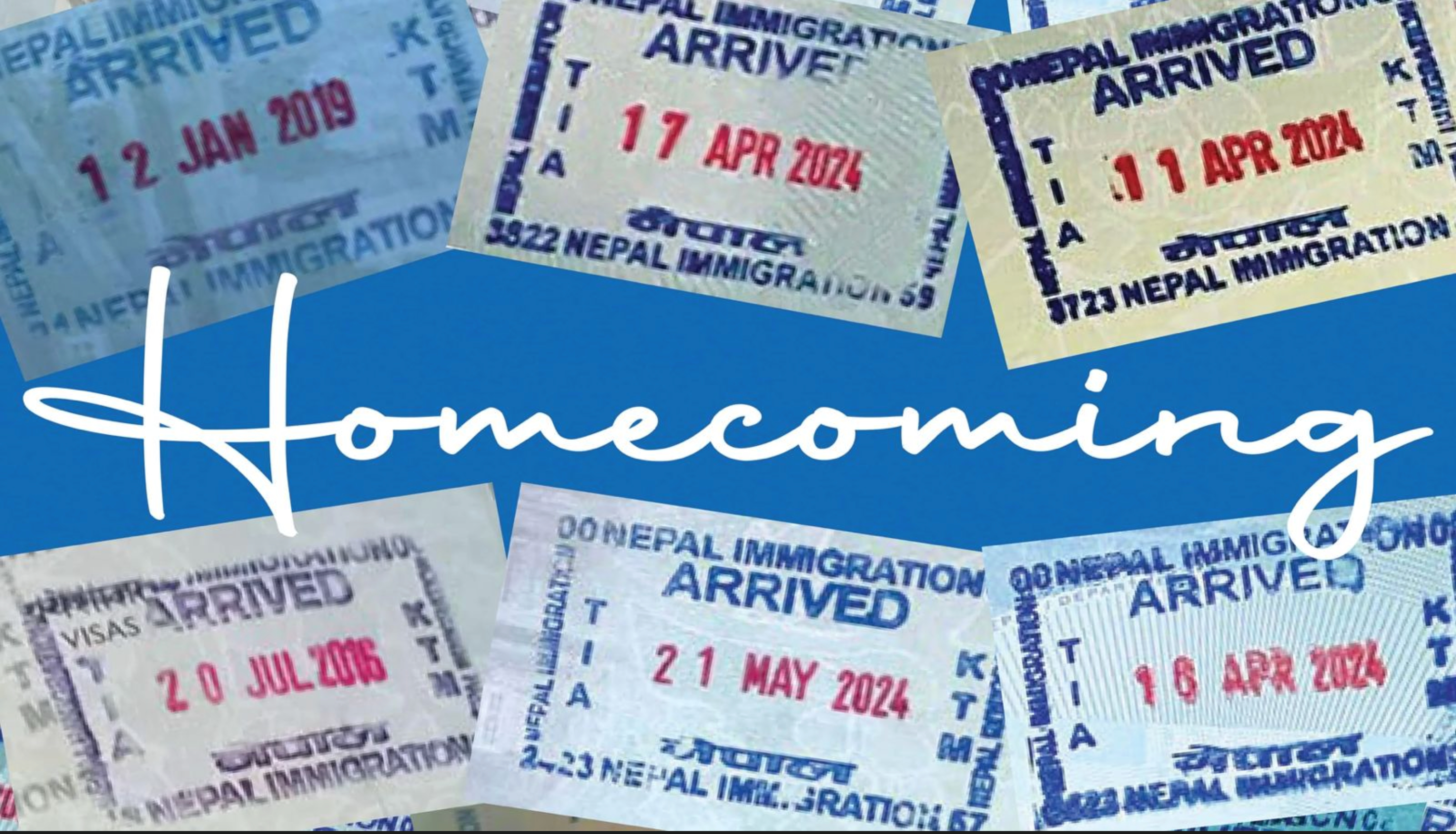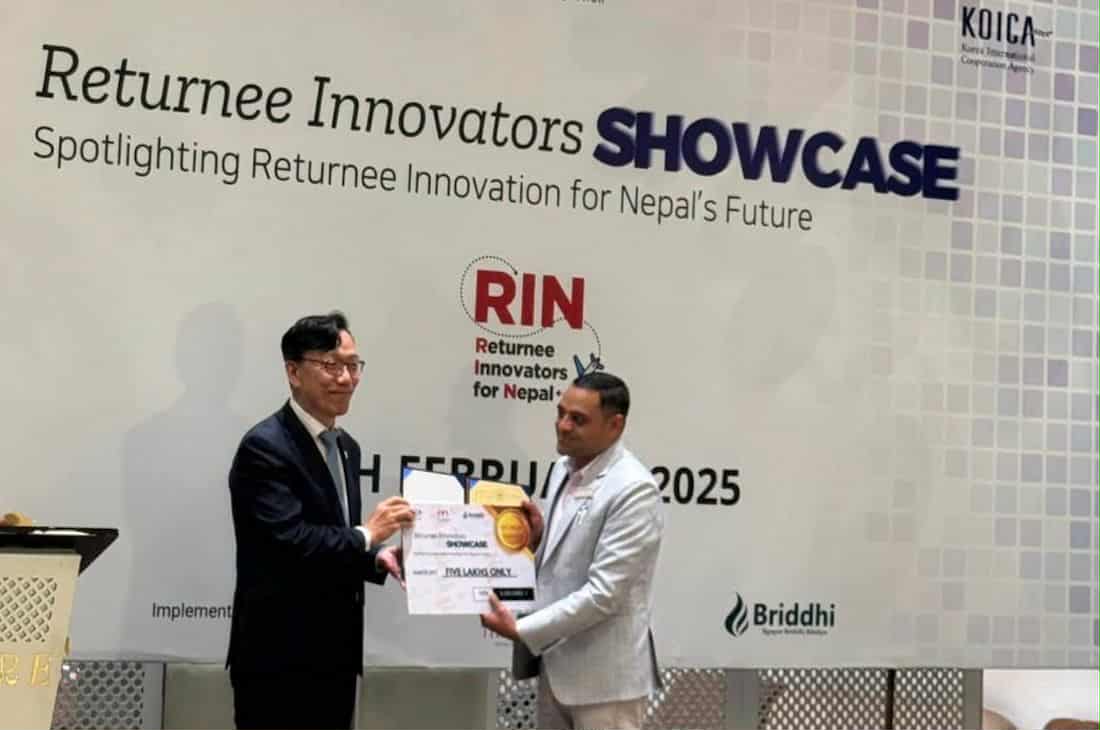Helping migrant returnees to pivot
Training and mentorship can tangibly help Nepalis in their journeys back homeWhen Gagan Singh Lama returned to Nepal after five and a half years in Qatar, he felt lost. He tried to find a footing in Nepal, grappling with questions like “Who am I? What is my identity?”
Despite the earnings, portage did not give him a sense of professional identity. Back in Nepal, he has been managing his cousin’s car wash, and recently completed a government-funded automobile mechanic training course, something he had a knack for since childhood. He plans to add services and expand the car wash.
Studies have found that remittances can be an important source of capital for previously credit-constrained workers to start their businesses. The most favourable outcome is when skills learnt overseas are transferable or relevant back home.
Some workers even return with suitcases full of equipment or recipe books from their overseas work that are relevant for planned ventures back home. But that is not always the case: technical skills gained overseas do not always transfer in Nepal.
For migrant returnees a recurring theme is the need and ability to pivot by switching jobs, acquiring new skills through training programs in countries where they work, or as in the case of Gagan, skilling after they return.
Prabin Shrestha and Shahadev Gurung returned to Nepal, but remigrated after realising that the plastic manufacturing venture they had in mind was not going to work in Nepal. Back in Korea, they switched jobs to a meat shop.
Learning the trade inside out paid off when they came back to Nepal for good, and they now run a successful meat business. Such pivots are not always feasible overseas as visa sponsorship schemes are not designed to allow job mobility, especially in the Gulf.
An alternate workaround is to use off-hours or days off to take technical skills or entrepreneurship classes. There are some small-scaled initiatives targeting potential returnees at destination countries that are creating the space for workers to pivot and prepare.

Ishwar Banamala explored entrepreneurship ideas through classes in Korea that were unrelated to his manufacturing job there.
Sungyoul Seo, who manages the KOICA Reintegration (K-HaMi) in Kathmandu, says the Korean government provides legally employed migrant workers free vocational training as part of its Employment Insurance benefits, but there are also pilot training designed specifically for Nepalis. One program provides training in Korean food, motorcycle maintenance, and trade after a survey of over 1,400 Nepalis showed a preference for these fields for their post-return plans.
Taking classes overseas can be challenging given busy schedules with overtime work and logistical challenges. But there are options for similar training back home for returnees. At a recent program in Kathmandu under the K-Hami project, for example, two Korean chefs trained returnees who hoped to start K-food restaurants, either individually or in groups. Others with existing eateries wanted to expand their menu offerings.
Even though the workers had mostly been employed in manufacturing or agriculture in Korea, the entrepreneurship drive, cultural affinity and transferable soft skills made the training initiative an appealing pivot.
There are technical and entrepreneurship programs in Nepal open to all, not just returnees. Awareness programs are important to spread the word. Workers can attest to the importance of less visible but important traits like time management, hard work, communications and working in diverse settings that they gained overseas.
Jinsol Hwang, who runs the Returnee Innovator for Nepal (RIN) program, says it is important to help people tap into their entrepreneurial mindset. Exposure to how things work overseas can spark ideas back home if they are observant and enterprising.
Jinsol works with potential returnee entrepreneurs who carry “entrepreneurial DNA” while still in Korea and post-return. They are offered training and network support including connecting Nepali workers with mentors in Korea to learn about businesses that can eventually lead to commercial partnerships.
Madushika Lansakara who heads the Reintegration of Returnee Migrant Workers (ReMi) agrees that industrious returnees have soft skills and experiences that allow them to pivot even when the technical expertise may not directly apply. The ability of returnees to switch depends on factors such as personal networks and location, with urban centres offering more opportunities. Lansakara emphasises the importance of building migrant networks in both the destination country and back home at local levels.
Such networks can help address challenges like weaker social networks after being away for long periods, create a sense of community and belonging and open up two-way communication channels with the government.
Korea returnee Santosh Dahal is one of the ten returnees who started Rasilo Agriculture Nepal, an idea that was born while they were in Korea. They collect produce from farmers across 60 districts, process, market and sell them. “We are creating jobs for 60 others while also being employees and investors ourselves,” says Dahal. “Without this collective effort, we could not have operated at this scale or capitalised on our individual strengths and interests. On our own, none of us had everything it takes to run such businesses.”
Rasilo won last year’s RIN business pitch competition, setting an example for fellow returnees. Highlighting such stories of reintegration matters so others who want to come back can learn about possibilities and pitfalls in Nepal.

Remigration can also be a choice for many, and not everyone goes back just because nothing worked in Nepal. For many workers, the cycle of return and remigration is driven by ever-changing household needs, school fees, buying land or house, daughter’s wedding or parents’ health fees.
In this race to become better providers, personal dreams and post-return plans can take a backseat. As one worker put it: “Ours is a generation of sacrifices.”
But once they come home, many can be cast adrift. Lansakara says economic reintegration is especially difficult when households do not have multiple sources of income, or if they have outstanding debt.
The financial and social remittances that returnees bring need to be valued and mobilised. But once we dig a little deeper and start questioning how, it gets more complicated.
What practical interventions can tangibly help returnees in their journeys back home?
Demonstration projects back in Nepal are tackling this on a small scale so returnees feel more prepared and less lost when they step out of the arrival section of the airport.
Upasana Khadka heads Migration Lab, a social enterprise aimed at making migration outcomes better for workers and their families. Labour Mobility is a regular column in Nepali Times.

writer




